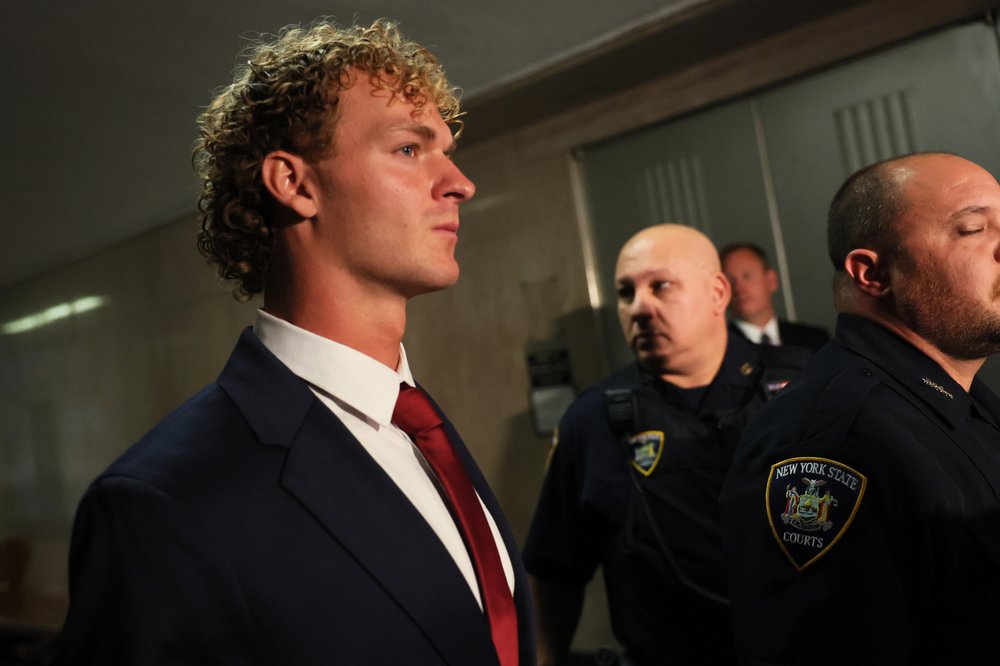Witnesses in Daniel Penny’s trial shouldn’t call him a ‘good Samaritan,’ prosecutors say
Oct. 25, 2024, 6:31 a.m.
Eyewitnesses should be allowed to characterize his actions, the defense counters.

Prosecutors are asking a Manhattan judge not to let trial witnesses call the former Marine accused of choking a homeless man on the subway a “hero” or “good Samaritan,” according to an email exchange between lawyers this week.
The emails between prosecutors and Daniel Penny’s defense lawyers came as jury selection is underway in the case. Penny, a 26-year-old Long Island native, is charged in the death of Jordan Neely, a homeless man with schizophrenia who witnesses say boarded an uptown F train and started yelling that he was willing to die or go to prison for life. Penny has pleaded not guilty to manslaughter and criminally negligent homicide charges.
A video that captured Penny holding Neely in a chokehold for several minutes went viral and highlighted stark divisions in the debate about subway safety. Some watched the clip in horror and accused Penny of vigilantism, while others praised him and donated nearly $3 million to a legal defense fund. Penny has said he didn’t mean to kill anyone and that he put Neely in a chokehold to subdue him, because other passengers were scared. Prosecutors argue that he acted recklessly and should have been more careful with Neely’s life.
Assistant District Attorney Dafna Yoran raised concerns about how witnesses can refer to Penny after watching an interview Penny’s attorneys conducted on FOX5, in which they praised their client’s actions on the subway.
“Danny doesn’t have to be a hero,” defense attorney Thomas Kenniff told FOX5. “But he’s someone who did the right thing. He’s someone who stood up for his fellow man, for his fellow New Yorkers.”
Yoran said the DA’s office was worried that the defense attorneys might try to get witnesses to assess whether Penny’s actions on the subway were appropriate. Yoran mentioned the terms “good Samaritan” and “hero” as labels that witnesses shouldn’t be allowed to use to describe Penny, because she said they’re subjective opinions.
“A witness's characterization of the defendant [as] a hero, for example, is the equivalent of a determination that the [defendant] was justified,” she wrote.
Yoran said it should be up to the jury to decide whether Penny was justified — not the witnesses called to testify about the facts.
But Kenniff responded that the witnesses on the subway that day are the ones who used those words “minutes after this incident” and that their characterizations of what happened should be heard in court.
“It describes what they perceived, Neely acting as the aggressor, and Mr. Penny acting to defend and protect,” he wrote.
A spokesperson for the Manhattan DA’s office declined to comment on the email exchange. Penny’s attorneys did not respond to an inquiry.
Daniel Penny’s defense likely to invoke NYC subway as a key ‘witness’ in fatal chokehold trial Jury will hear what Daniel Penny told NYPD after fatally choking Jordan Neely in subway